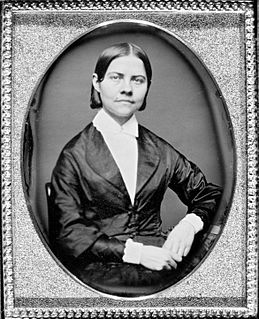A Quote by Lord Byron
Physicians mend or end us, Secundum artem; but although we sneer - In health - when ill we call them to attend us, Without the least propensity to jeer
Related Quotes
Of course, let us have peace, we cry, "but at the same time let us have normalcy, let us lose nothing, let our lives stand intact, let us know neither prison nor ill repute nor disruption of ties ... " There is no peace because there are no peacemakers. There are no makers of peace because the making of peace is at least as costly as the making of war - at least as exigent, at least as disruptive, at least as liable to bring disgrace and prison, and death in its wake.
If true, the Pythagorean principles as to abstain from flesh, foster innocence; if ill-founded they at least teach us frugality, and what loss have you in losing your cruelty? It merely deprives you of the food of lions and vultures...let us ask what is best - not what is customary. Let us love temperance - let us be just - let us refrain from bloodshed.
Lord, please restore to us the comfort of merit and demerit. Show us that there is at least something we can do. Tell us that at the end of the day there will at least be one redeeming card of our very own. Lord, if it is not too much to ask, send us to bed with a few shreds of self-respect upon which we can congratulate ourselves. But whatever you do, do not preach grace. Give us something to do, anything; but spare us the indignity of this indiscriminate acceptance.
Let us read the Bible without the ill-fitting colored spectacles of theology, just as we read other books, using our own judgment and reason, listening to the voice within, not to the noisy babel without. Most of us possess discriminating reasoning powers. Can we use them or must we be fed by others like babes?
We achieve active mastery over illness and death by delegating all responsibility for their management to physicians, and by exiling the sick and the dying to hospitals. But hospitals serve the convenience of staff not patients: we cannot be properly ill in a hospital, nor die in one decently; we can do so only among those who love and value us. The result is the institutionalized dehumanization of the ill, characteristic of our age.
Although a government study found that men's health was much worse than women's health or the health of any minority group, headlines around the country read: 'Minorities Face Large Health Care Gap.' They did not say: 'Men Face Large Health Care Gap.' Why? Because we associate the sacrifice of men's lives with the saving of the rest of us, and this association leads us to carry in our unconscious an incentive not to care about men living longer.
Our lives are full of separations that shake us up, force us to attend to our emotional selves and to learn new ways of being in the world. Although many of our losses are painful, they encourage our gains. The lesson life is trying to teach us is that, regardless of the challenges and changes in the physical world, we will abide in peace by aligning ourselves with our inner changelessness. The power of God in us is more than equal to any moment-no matter what it brings. We live in a loving, supportive universe that is always saying yes to us.






































